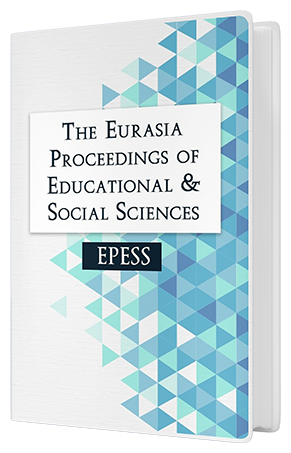Synthesizing Social Constructivism and Cybergogy for Student Engagement in Open Distance and e-Learning (ODeL) Environments: An Integrative Review and Framework
DOI:
https://doi.org/10.55549/epess.1413285Keywords:
Student engagement, Social constructivism, Cybergogy, Digital pedagogy, Open distance and e-learning (ODeL)Abstract
This paper synthesizes and integrates the concepts of social constructivism theory and the cybergogy framework to provide a comprehensive understanding of technology use to enhance student engagement in open distance and e-learning (ODeL) contexts. To meet this objective, we conducted an integrative review of the literature to map the conceptual terrain of current literature on student engagement in ODeL environments. The literature search was conducted across five databases, and themes were extracted from the literature to provide new perspectives and insights on student engagement in ODeL. The study underscores the role of facilitating technologies in ODeL. We found that student engagement in ODeL depends on developing an active digital pedagogy that promotes student empowerment and a sense of agency to apply digital tools to interact, collaborate, and enable purposefulness in the learning process. The findings also suggest that academic instructors require institutional support through training and continuous professional development to effectively utilize digital technologies to enhance student engagement. Additionally, ODeL institutions should be aware of the hidden workload impact on instructors that implementing active digital pedagogies for student engagement has. Therefore, instructors also require support with workload management interventions. Based on these findings, we develop a conceptual framework for engaged learning in ODeL environments.Downloads
Published
Issue
Section
License
Copyright (c) 2023 The Eurasia Proceedings of Educational and Social Sciences

This work is licensed under a Creative Commons Attribution-NonCommercial-ShareAlike 4.0 International License.
The articles may be used for research, teaching, and private study purposes. Any substantial or systematic reproduction, redistribution, reselling, loan, sub-licensing, systematic supply, or distribution in any form to anyone is expressly forbidden. Authors alone are responsible for the contents of their articles. The journal owns the copyright of the articles. The publisher shall not be liable for any loss, actions, claims, proceedings, demand, or costs or damages whatsoever or howsoever caused arising directly or indirectly in connection with or arising out of the use of the research material. All authors are requested to disclose any actual or potential conflict of interest including any financial, personal or other relationships with other people or organizations regarding the submitted work.




